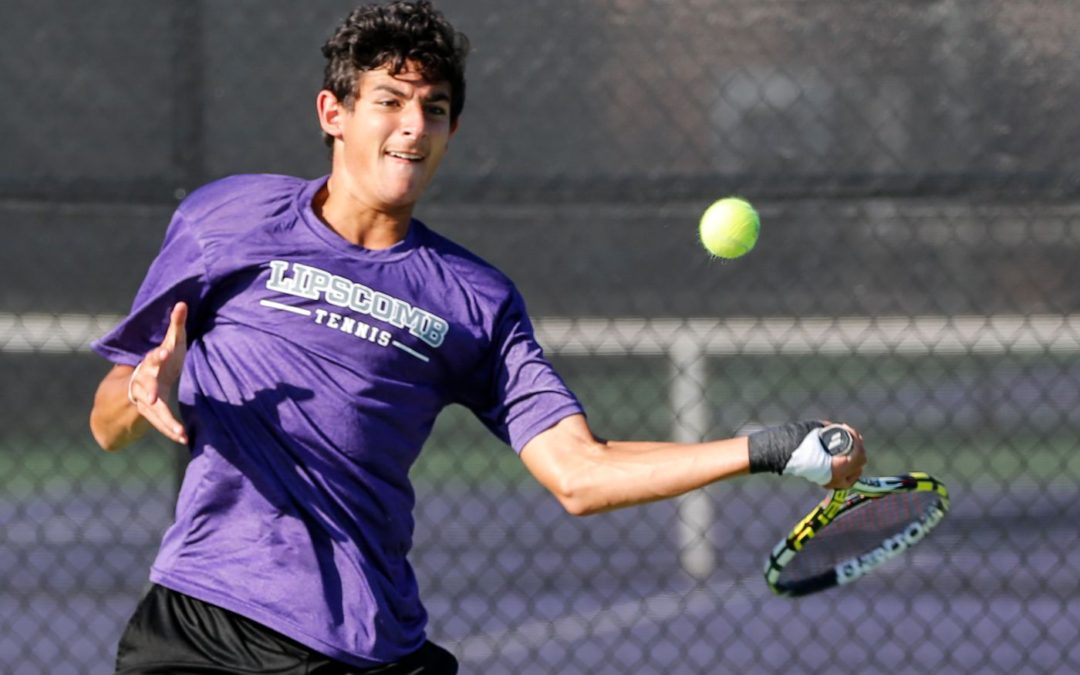Tennis player Alejandro Manzanares scanned the room as he walked in, alert to his surroundings yet eager to sit down and share his story — traits he’s acquired from growing up in Caracas, Venezuela, considered to be the most dangerous city in the world due to its high murder rate.
The junior international business major came to Lipscomb his freshman year after being recruited by tennis coach Mario Hernandez. He was the No. 1 player in Venezuela in the 18 and under division and was in Hernandez’s second class of recruits.
“He’s been one of our best recruits, highest-ranked internationally and one of our best performers,” Hernandez said. “He plays very tough, disciplined tennis. Not flashy, but really solid.”
The athlete had never set foot on campus before arriving for move-in day, yet said his plan had always been to come to the United States for college.
“I never had much to do with my recruiting,” Manzanares said. “I just talked to the coach twice, signed two papers, and then, there you go, I’m at Lipscomb. I just showed up on move-in day. You come here, and everything is nice. Everything is clean. You can’t really complain about anything.”
Although he had traveled to the States before and was familiar with the country, he noted that coming to the school was still a big jump from what he was used to back home.
“I’d been in the U.S. a couple times, but Lipscomb is very different,” Manzanares said. “Like very, very different. Venezuela is just a mess right now. I, honestly . . . I wouldn’t go back today, but hopefully it will change. I always love going back home, but aside from the social stuff, everything else is terrible. It’s falling apart.”
“It’s crazy,” was a phrase Manzanares consistently repeated as he talked about the different challenges people face in his hometown; difficulties unfamiliar here, yet apparently normal in Caracas.
It’s basic stuff and staying alert, like not checking your phone in your car, keeping your car windows up, not walking at night on the street and not driving outside after a certain hour, that are normal precautions Caracas residents take daily.
“I’ve never been robbed, but my dad doesn’t — what I told you about checking your phone and stuff in the car — he doesn’t care about that,” Manzanares said, shaking his head with a slight chuckle. “One time he almost got shot. He was in a public cafeteria checking his phone, and a guy literally walked up to him and pretty much said, ‘Give me everything you got.’ And my dad kind of tried to say no, and the guy tried to shoot him, but the gun didn’t work.
“I never do stupid stuff there. There, doing stupid stuff is risking your life.”
Manzanares said he does worry about his parents still living in Caracas, but despite all the troubles that Venezuelans currently face, he said that it is still what feels like home to him.
“You feel more at home [in Venezuela]. Some people are happier, even though right now you shouldn’t be walking down the street.”
Photo courtesy of Lipscomb Athletics

